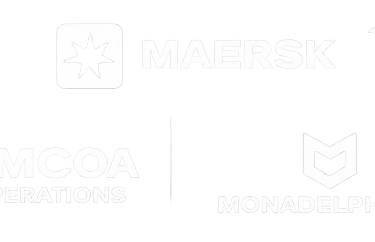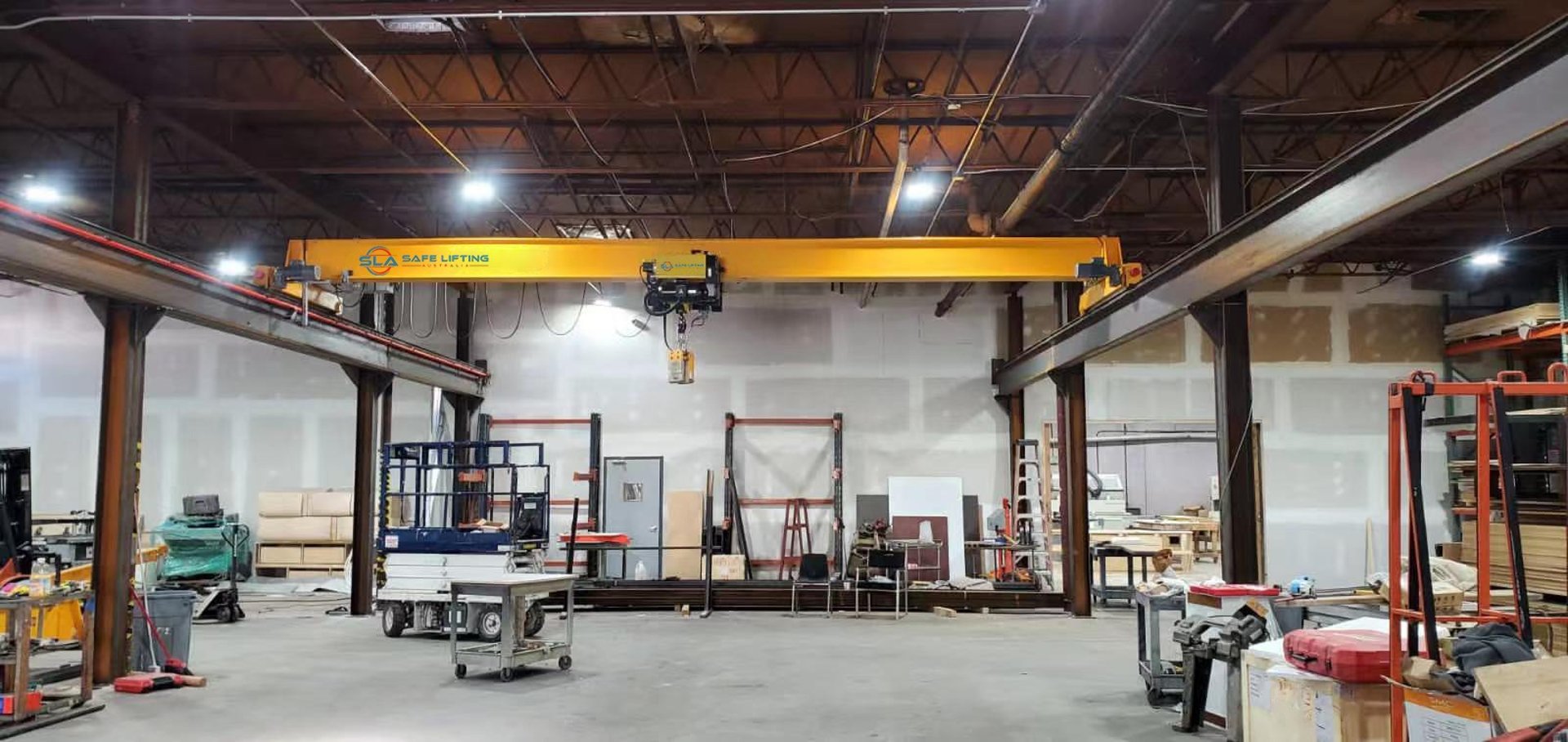
25-Year Major Inspections for Overhead Cranes (Bridge & Gantry)
Older cranes demand more than a routine service. At 25 years, Standards require a major inspection and assessment for continued safe use — a deep dive into structure, runway rails, hoist/drive systems, and compliance. We deliver end-to-end 25-year inspections across Western Australia (Perth, Kwinana/AMC, Pilbara, Goldfields) and Australia-wide for mining and LNG sites.
What’s included (Scope)
1) Structure & Supporting Structure
Visual + NDT of welds at fatigue-prone areas, corrosion mapping, thickness checks
End carriages, connections, buffers, fasteners; supporting columns and frames
Clearances, access, isolation hardware and guarding per the crane class/arrangement. (AS 2550.3 - 2002, AS 1418.3 - 1997)
2) Runway, Rails & Guidance
Rail condition (burrs, flatting/mushrooming, spalling), joints & fixings, alignment
Check deflection/track behaviour of runway supports for wheel tracking and flange binding risk. (AS 1418.18 - 2001)
Confirmation that rails meet design intent and provide safe wheel guidance (wheel–rail interface checks).
3) Hoist, Trolley & Drives
Gearboxes, couplings, brakes, wheels (tread/flange), matched-wheel tolerances
Functional limits, emergency systems, isolation and interlocks.
4) Engineering Assessment & Records
Duty history, abnormal events, tolerance checks, thickness/NDT reports
Competent-person engineering report with repair recommendations and test plans. (AS 2550.3 - 2002, AS 2550.1 - 2011 Part 1)
Why a 25-Year Inspection?
Required to verify continued safe use after long-term fatigue, corrosion and wear. (AS 2550.3 - 2002 Part 3)
Confirms the crane can operate safely going forward or identifies rectification and upgrades before return to service. (AS 2550.1 - 2011 Part 1)
Reduces downtime risk on critical production of assets and manufacturing (refineries, LNG trains, concentrators, ports etc).
Undertake your next 25-year inspection with Safe Lifting Australia.
ISO 9001 certified systems
DNV/API-qualified inspectors
WA mining & LNG specialists
📞 1300 141 109 • ✉️ service@safelifting.com.au
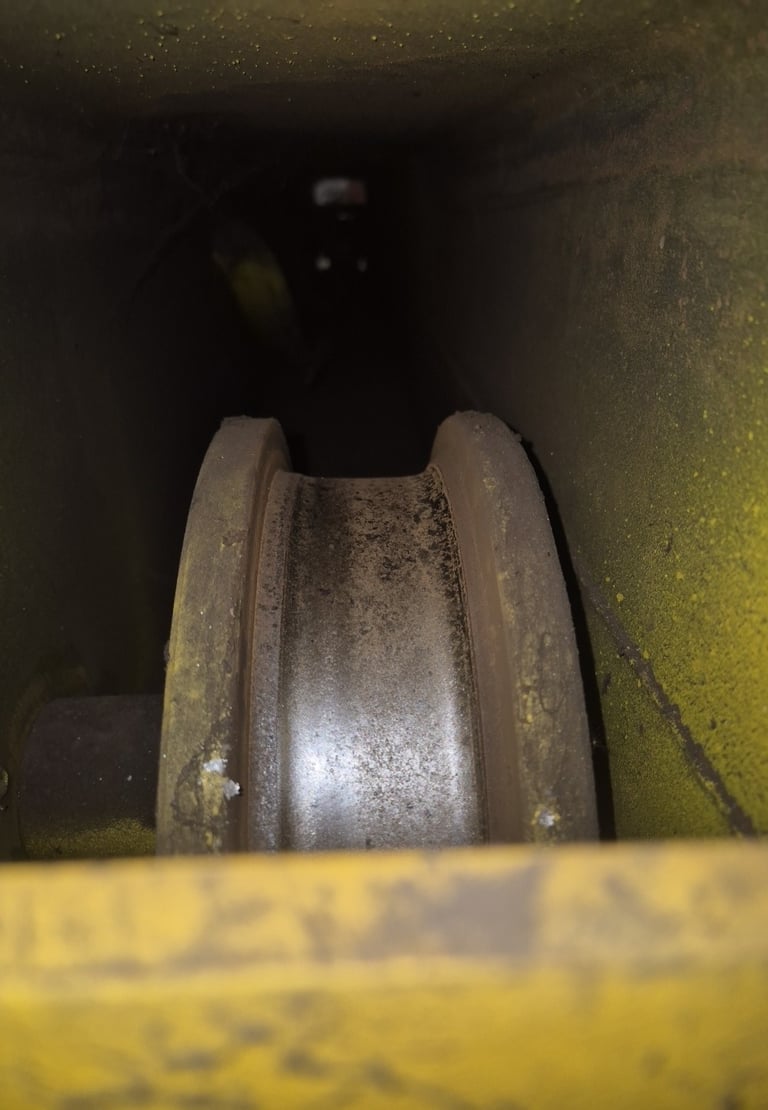

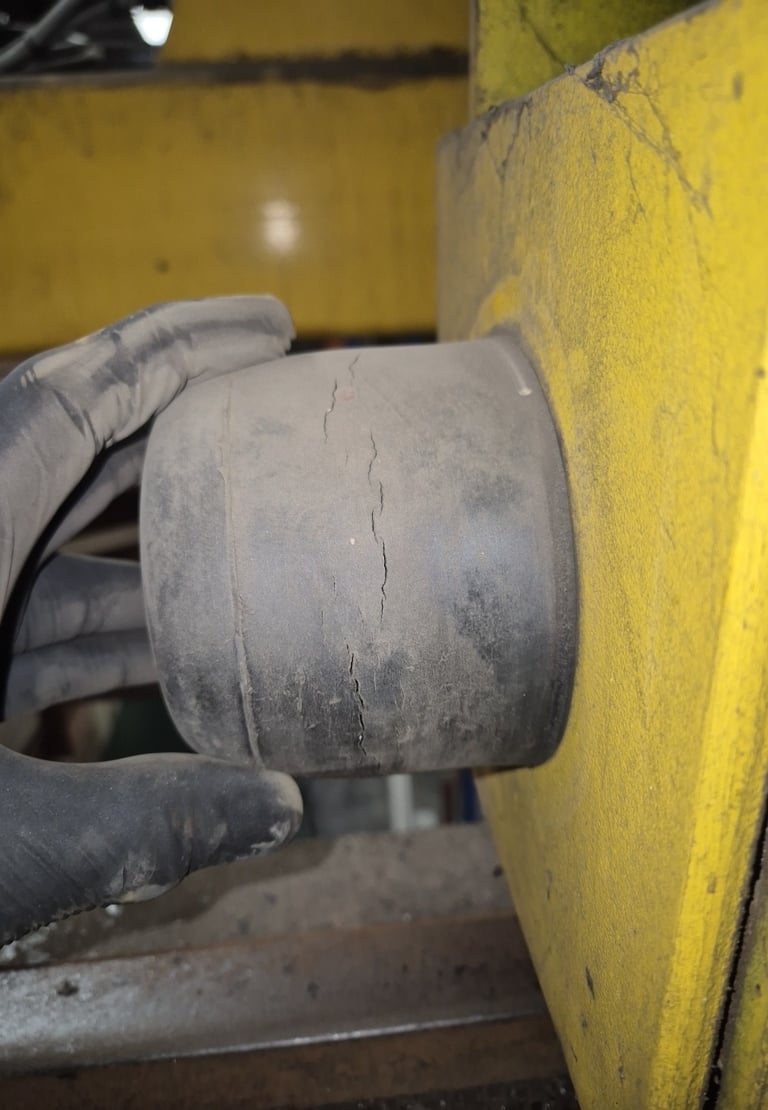

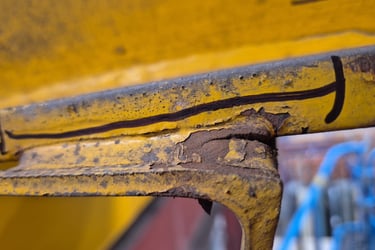

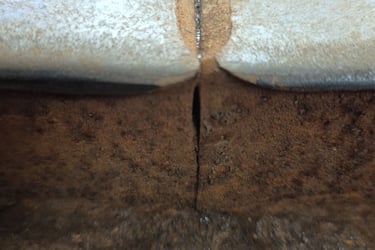

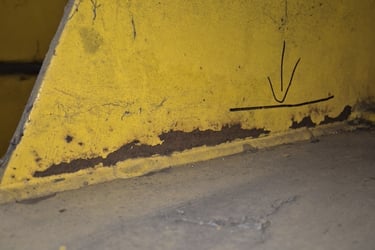

How we deliver (3 Steps)
Inspection & NDT — structure, runway, hoist/drives, electrical; disassembly/clean-down where required for thorough access. (AS 2550.3 - 2002 Part 3)
Engineering Assessment (AS 2550.1/.3 + AS 1418.1/.18) — suitability for continued safe use, upgrades to current practicable requirements, and inpsection|test plan.
Rectification & Re-verification — risk-ranked repairs, re-inspection and documentation prior to return to service. (AS 2550.1 - 2011 Part 1)
The Regularly Overlooked Item: Runway Rail Wear (the silent failure)
Runway rail geometry directly affects wheel guidance, derailment risk and bearing stress. Rails must be free from burrs/deformation that impair operation, and designed/maintained for the intended life.
Sectors & sites we serve
Western Australia (primary focus): Perth metro, Kwinana/AMC Henderson, Pilbara (Karratha, Port Hedland, Newman), Goldfields (Kalgoorlie).
Australia-wide heavy industry: Mining, LNG (onshore/offshore), ports, shipyards, steel/fabrication, defence.
Deliverables you receive
Detailed inspection & NDT reports (photos, measurements, thickness/NDT maps)
Engineering assessment & suitability for continued safe use statement
Risk-ranked rectification schedule, parts list, and upgrade options
Test plan and re-verification records for close-out
FAQs
Is the 25-year inspection mandatory?
It’s the pathway specified in AS 2550 to establish continued safe use when cranes reach that age or duty — combining major inspection + engineering assessment. (AS 2550.3 - 2002 Part 3)
How long does it take?
Depends on access, crane size/condition, and required disassembly. We stage works to minimise production impact. Expect 1 to 3 days for most cranes.
Do you work shutdowns?
Yes — shutdown-aligned scopes and night shifts for tier-one mining/LNG sites.
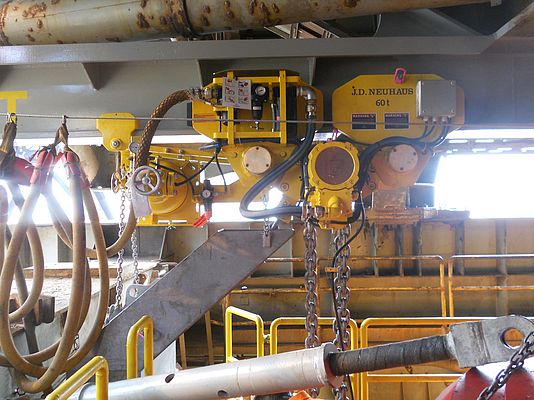

ABN: 85 674 428 098


GLOBAL OPERATIONS
Safe Lifting Australia Pty Ltd
Crane Inspection, Certification & Engineering Support
Across Australia and the Asia-Pacific Region - Over 100 Years Combined Crane & Lifting Industry Experience
☎ 1300 141 109
☎ +61 1300 141 109 (International)
✉ service@safelifting.com.au
Head Office
Perth, Western Australia
Operating Regions
Supporting Mining, Energy, Offshore, Marine & Infrastructure Industries
Australia
Singapore
Malaysia
New Zealand
Papua New Guinea
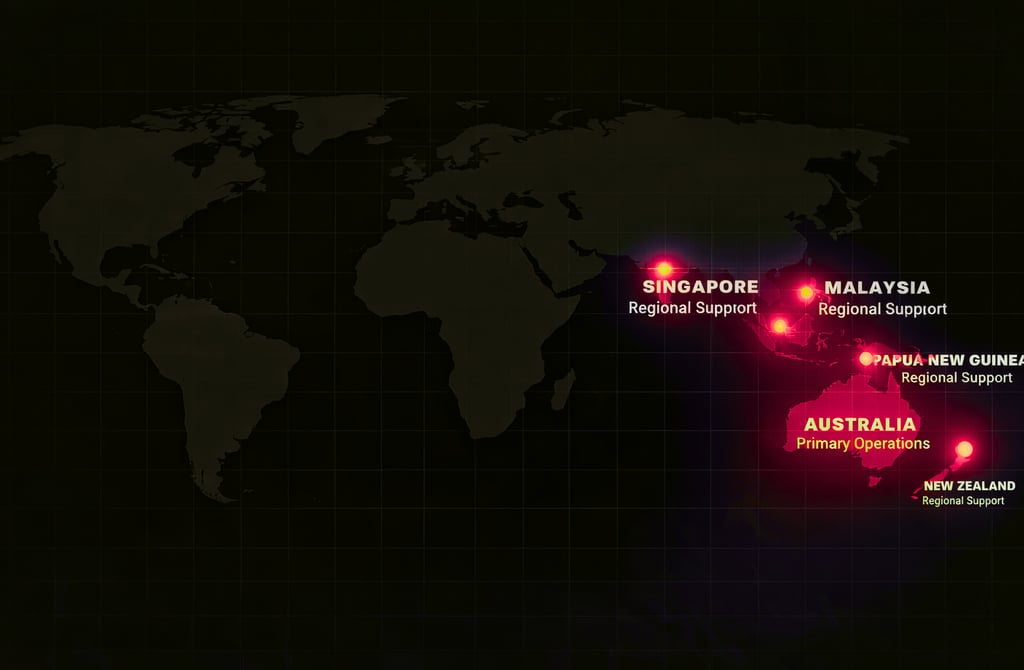

TRUSTED BY LEADING ORGANISATIONS
© 2026 Safe Lifting Australia Pty Ltd
All Rights Reserved
ISO 9001:2015 Certified | LEEA Member | Offshore & Overhead Crane Specialists
Projects completed across mining, offshore, defence and industrial sectors.

